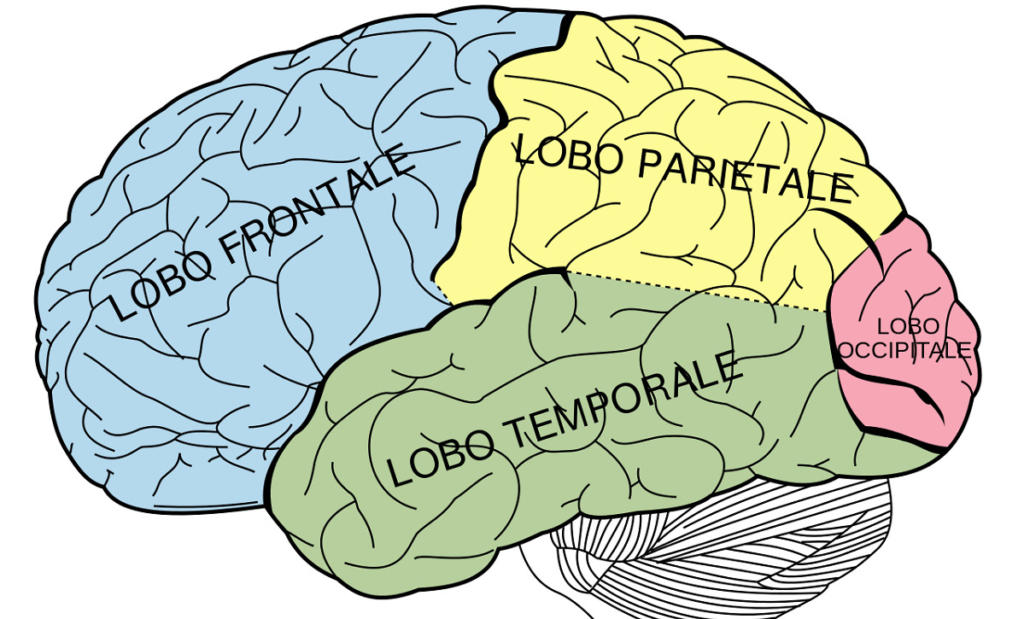by Gioele Cedro and Sharon Puccio
Short Intervention Psychologists trained in Single Session Therapy
www.psicologitirreno.it
Life presents us with new challenges every day but we can equip ourselves with techniques that allow us to face and overcome these challenges in the best possible way.
One of the biggest challenges that we all face in life at one time or another is school: lessons, questions, class assignments and new teachers make our path to adolescence tortuous and sometimes difficult.
Studying in the classroom and then at home is undoubtedly complex, being careful, learning and memorizing are all things that require effort and patience!
Memory is very important when facing school challenges , when we have to ask a question or do a test in the classroom.
According to a well-known scientist and student of the human brain, Hans Eysenck, learning and memory are linked together.
The memory of a concept is born only if we first read or listened to it and then understood and learned it.
The learning of a mathematical formula or a poem exists only if we understand it first. The memorization of a notion can be done through the verification of the concepts learned.
The queries, for example, are tests of the concepts learned .
The teachers have the task of assessing whether we have studied the lesson or not, they must understand if we have understood, learned and memorized the homework.
According to scholars, memory is still to be discovered but if there is one certainty it is that memorization is a consequence of learning and without learning you cannot have memorization.
LEARNING – STORAGE
When we learn a concept we make it ours and it becomes part of our knowledge, the more we feel it our better we will remember it in the future.
But how do we remember even boring and apparently useless things that we need to do a certain question or task?
Here are 4 tricks you can use to improve your MEMORY and also a natural support to enhance the learning and memorization process:
1. Know your brain
The first step is to know at least a little how our brain works! I know it may sound complex but we can only focus on key concepts such as the learning and memorization phases.
In this case, you just need to know that learning and memory are psychological processes that are divided into three phases:
- Information coding phase (for example with reading).
- Memory information storage phase .
- Phase of recovery of information that is already stored and that can be recovered or remembered as needed and if necessary.
Our brain is divided into different areas , each has a specific function but the memory does not have a single location, it is found in many parts of the brain, it branches out like a large network that embraces all areas.
In addition to branching into various areas, it has many different functions: for example, there is memory for movements, one for images, one for sounds or even smells.

Each of these brain regions is never isolated from the others, rather it is connected with the rest of the brain. This type of network structure has intrigued scientists who have begun to study and understand not only how the brain works, but also how to train it effectively.
In fact, we will see how to increase memory through things that are good for the whole brain , that require only a little effort and that help the memory to grow stronger than ever.
2. Listen to audiobooks and podcasts
To improve your memory, it can be useful to train it by listening to audiobooks or podcasts.
Audiobooks are found online very easily, there are free or paid ones.
Podcasts, on the other hand, are mostly free and are easily found on podcast sites or even on Spotify or other services for listening to music.
Have you ever remembered perfectly by heart the lines and scenes of a film or cartoon that you saw so many times as a child? Maybe you can remember the tone of voice of the characters, the environment in which they move, how they are dressed or what they look like.
This is possible thanks to the learning and memory processes of our brain: listening to a dialogue or an explanation several times helps us to remember it more easily.
Audiobooks and podcasts can help us learn new things, or review things we already know. They can also be useful for studying faster!
It is possible to find podcasts of all school subjects online and listen to them in the shower, during a walk, while you are lying down doing nothing, or while traveling by car or bus. It can certainly become an opportunity to have an edge.

3. Read 15 minutes a day
We have said that there are different types of memory and even if listening to audiobooks and podcasts is sometimes more comfortable, the brain must also be trained on the reading front.
In particular, several scientific researches claim that reading improves working memory.
The working memory capacity is a space in which we can insert a number of limited resources that help us to process and store the information coming from the environment.
Working memory is temporary in the sense that it allows us to keep things in mind for a certain short period of time. It is very useful for both study and everyday life.
What is certain is that you do not need to read long and complicated books, it is important to read for a short time every day: just read any book, article, comic or post that can transmit new knowledge to us for a quarter of an hour a day. complex mechanism of learning and memorization of information.
Some scholars have decided to do a research to find out how important working memory was in reading and understanding a text. Seigneuric and colleagues (2005) noted that the better and faster we become at automatically recognizing words during the early school years, the more working memory helps us understand the text we are reading.
In short, if we don’t read the working memory it starts to fail, and if the working memory gets worse we lose the ability to read effectively.
4. Sleep regularly
Sleep is one of the most important things we do for a living, it really takes a lot to memorize important things effectively.
In fact, sleeping is very useful for the brain because it allows it to eliminate unnecessary memories and memorize what we need.
As psychologist Sharon Puccio states in her article How do I sleep better?
“ Sleep is one of the pillars on which a good and healthy routine rests; if it wobbles or collapses, the other pillars will automatically be put under strain and sooner or later they will begin to yield compromising the stability of the entire structure “.
Two scientists, Born and Wilhelm (2011), have seen how memory consolidation occurs during sleep: in particular, memories are reactivated while we sleep to be strengthened and invigorated.
The consolidation process during sleep is selective and chooses to save only a few memories, i.e. those we need for the next day’s questioning or for the appointment we made with that boy or girl we like.
5. Enhance your memory with Memorens
But these techniques alone are sometimes not enough and to be prepared for back to school we can count on 100% natural support that helps us from within.
Enriching our days with a good read, listening to an interesting podcast or a restorative sleep is important and satisfying and we can enhance its effect with a natural supplement that directly helps our brain.
For this reason , to enhance memory even more effectively and efficiently , it is useful to nourish the brain with natural substances that have the ability to modify brain circuits and improve performance and study and memory skills.
Memorens (oral solution or tablets ) is a food supplement which, if taken every day, helps to significantly improve memory and allows the exercises and tips mentioned above to be even more effective.
The natural active ingredients contained are studied and calibrated for the well-being of the organism and the brain which in turn will lead to positive change and an active improvement of skills and competences.
Bacopa extract improves memory and cognitive functions and may be helpful in promoting relaxation and maintaining mental well-being.
Eleutherococcus is used as a tonic to invigorate and fortify the body in moments of fatigue and weakness and when concentration and attention levels are lowered.
Surviving obstacles is not easy, but a trained memory and above all nourished by natural active ingredients makes us equipped to overcome challenges by improving ourselves day by day.
References
- Falghera, M. (2013). READING + LISTENING. How to improve linguistic, emotional and empathic learning with audio books. (Audio-eBook) . the speaker.
- EYSENCK, M. (2006). Italian translation by BELLELLI G., DI NUOVO S., MATARAZZO O. General Psychology .
- Carlson, NR, De Gennaro, L., & Buonarico, L. (2002). Behavioral physiology . Padua: Piccin.
- Seigneuric, A., Ehrlich, M., Oakhill, JV et al. Working memory resources and children’s reading comprehension. Reading and Writing 13, 81-103 (2000). https://doi.org/10.1023/A:1008088230941
- Seigneuric, A., Ehrlich, M. Contribution of Working Memory Capacity to Children’s Reading Comprehension: A Longitudinal Investigation. Read Writ 18, 617 (2005). https://doi.org/10.1007/s11145-005-2038-0
- Born, J., Wilhelm, I. System consolidation of memory during sleep. Psychological Research 76, 192–203 (2012). https://doi.org/10.1007/s00426-011-0335-6

